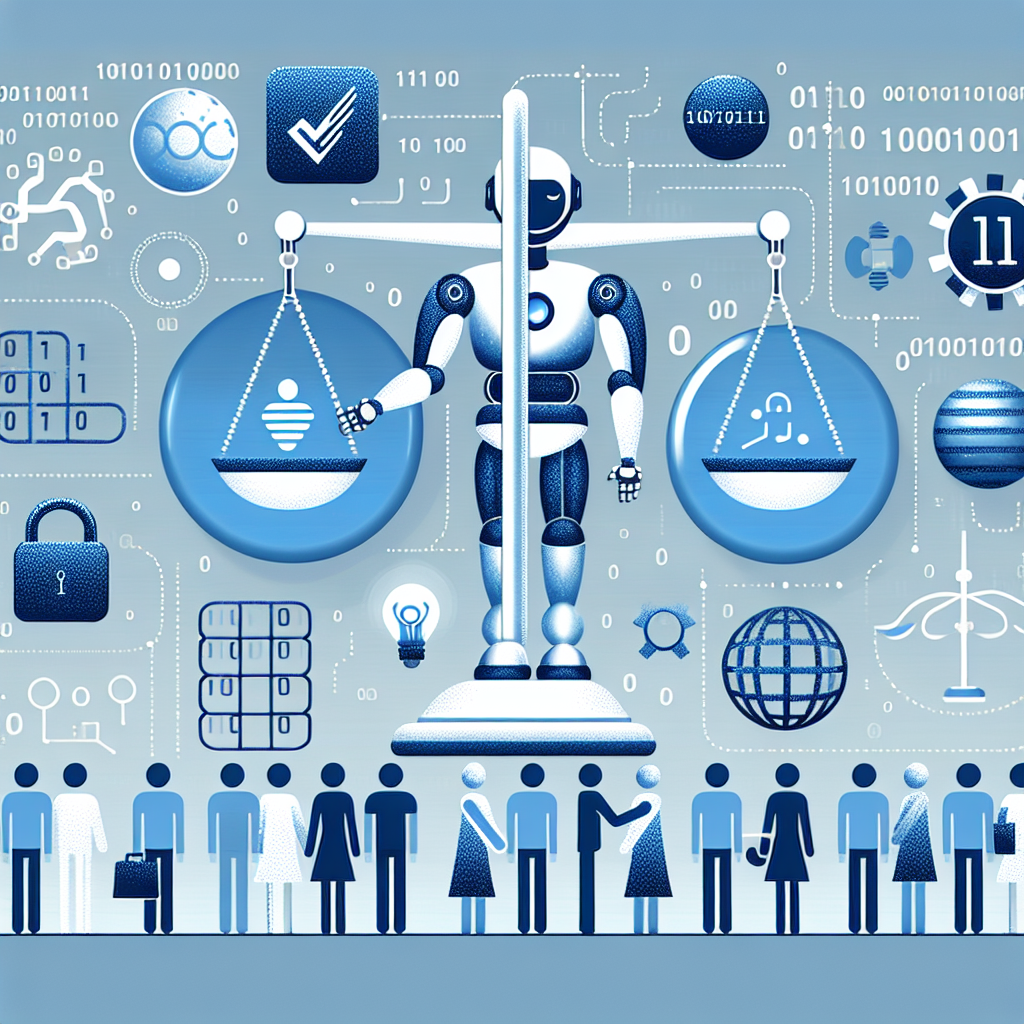Artificial Intelligence (AI) is increasingly being used in customer service to improve efficiency, accuracy, and customer satisfaction. However, as AI becomes more prevalent in this field, it raises important ethical questions about fairness and transparency. In this article, we will explore the ethics of AI in customer service and discuss how businesses can ensure fairness and transparency in their use of AI technology.
Fairness in AI
One of the key ethical considerations in the use of AI in customer service is fairness. AI systems are designed to make decisions based on data and algorithms, but these systems can be biased if the data they are trained on is biased. For example, if an AI system is trained on data that reflects discriminatory practices, it may perpetuate those biases in its decision-making process.
To ensure fairness in AI systems, businesses must carefully consider the data they use to train their AI models. It is important to use diverse and representative data sets to minimize bias and ensure that the AI system makes fair and equitable decisions. Additionally, businesses should regularly monitor and audit their AI systems to detect and address any biases that may arise.
Transparency in AI
Transparency is another crucial ethical consideration in the use of AI in customer service. Customers should be able to understand how AI systems make decisions and why they are making those decisions. Transparency is essential for building trust with customers and ensuring that they feel comfortable using AI-powered customer service tools.
Businesses can promote transparency in their use of AI by providing clear explanations of how their AI systems work and the data they use to make decisions. Businesses should also be transparent about the limitations of their AI systems and be honest about when human intervention may be necessary.
FAQs
Q: How can businesses ensure that their AI systems are fair and unbiased?
A: Businesses can ensure fairness in their AI systems by using diverse and representative data sets, monitoring and auditing their AI systems for biases, and being transparent about how their AI systems make decisions.
Q: What are some examples of biases that can arise in AI systems?
A: Biases in AI systems can arise from the data they are trained on, such as gender bias, racial bias, or socioeconomic bias. These biases can lead to unfair or discriminatory outcomes in decision-making processes.
Q: How can businesses promote transparency in their use of AI in customer service?
A: Businesses can promote transparency by providing clear explanations of how their AI systems work, being honest about the limitations of their AI systems, and being open about when human intervention may be necessary.
Q: What are the benefits of using AI in customer service?
A: AI can help businesses improve efficiency, accuracy, and customer satisfaction in customer service. AI-powered tools can quickly respond to customer inquiries, provide personalized recommendations, and analyze customer feedback to improve products and services.
In conclusion, the ethics of AI in customer service are crucial for ensuring fairness and transparency in decision-making processes. Businesses must carefully consider the data they use to train their AI systems, monitor and audit their AI systems for biases, and promote transparency in their use of AI technology. By prioritizing fairness and transparency in the use of AI, businesses can build trust with customers and create a positive customer experience.

